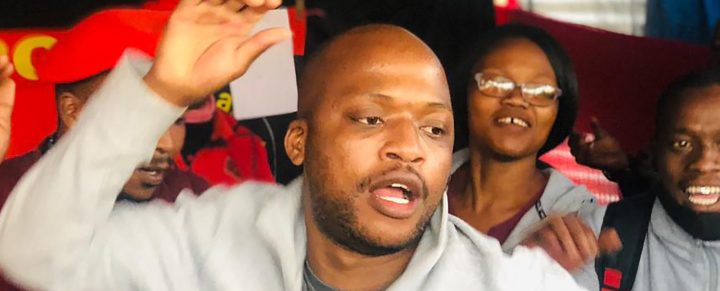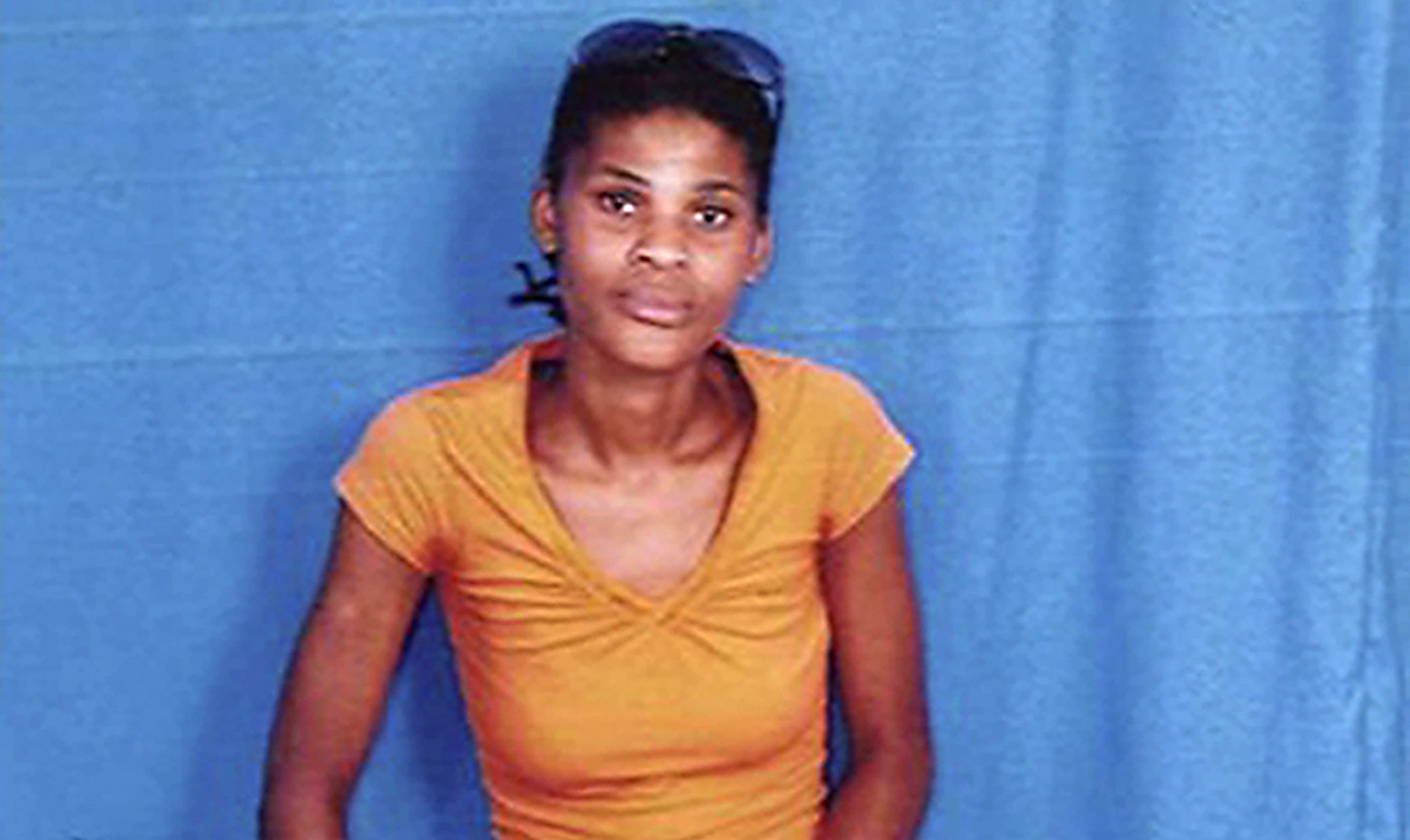AGE OF THE ASSASSIN ANALYSIS
Under siege: Abahlali baseMjondolo says the ANC sees it as the ‘enemy of the state’

Abahlali baseMjondolo, a grassroots organisation that fights for the poor and marginalised, emerged in the post-apartheid era more than 17 years ago and now has a paid-up membership of over 100,000 in five provinces. Its leaders have triggered the alarm many times that its members are under siege. This week 30-year old activist Ayanda Ngila was gunned down while tending to a communal garden in Cato Crest.
A group of men and women sat in sombre silence at eKhenana Commune hall in the Durban informal settlement of Cato Crest at noon on Wednesday as it dawned that Ayanda Ngila, a 30-year-old community leader, has gone forever.
A day earlier, Ngila, two other men and several women were trying to fix the vandalised piping system in the communal vegetable garden when they came under fire from four armed men.
Witnesses said Ngila tried to flee but was struck by several bullets and the attackers followed and shot him even as he was lying down.
Ngila was Abahlali baseMjondolo’s eKhenana Commune’s branch chairperson at the time of his murder.
The organisation has described him as a “brilliant and committed young man, and a visionary leader”.
The movement says he is the latest of more than 20 of its leaders and prominent members who have been assassinated since the organisation was formed in 2005. It claims most of these leaders have been killed by hitmen hired by local ANC leaders and others have been shot and killed by the police.
Abahlali says if their leaders are not shot and killed, they are arrested and imprisoned and made to face trumped-up charges.
Ngila, for example, spent more than six months in jail — between March and September 2021 — facing charges of murder. The state prosecutor reviewing the case decided to drop the charges, citing weak evidence and saying that key state witnesses recanted their statements and that there was no prospect of a successful prosecution.
Abahlali baseMjondolo emerged from a series of housing protests in 2005. It was formed after an incident in which about 750 people from the Kennedy Road shack settlement in Durban blockaded the N2 freeway for four hours with a burning barricade, protesting the evictions and the flattening of their shacks by the eThekwini Municipality. Fourteen people were arrested during this incident.
The movement grew so strong that its leaders were targeted for assassination. In September 2009, Abahlali President S’bu Zikode and several other leaders narrowly escaped death from hitmen. Their houses in Kennedy Road were attacked and set alight.
Now Abahlali BaseMjondolo is more than 17 years old and has a paid-up membership of over 100,000 in five provinces. Its leaders say they are still under siege.
According to Statistics SA, the eThekwini Municipality, which spans an area of approximately 2,297km², is home to some 3.5 million people.
According to eThekwini Municipality’s own study, the city has a backlog of more than 440,000 houses to build. This has forced many of its residents to live in squalid shantytowns and informal settlements.
Between 2016 and 2019, the city was only able to build an average of 4,000 houses per annum.
Professor Richard Pithouse, who has written extensively about the trials and tribulations of Abahlali, said the movement has suffered relentless armed, violent and unlawful state evictions, violent state attacks on lawful and peaceful protests, as well as violence and thuggery from local ANC politicians.
“Like most national liberation movements the ANC came to understand itself as the sole legitimate vehicle for national aspirations. This led it to assume that autonomous forms of organising were illegitimate. From the beginning, it (the ANC) saw Abahlali in these terms, as an illegitimate threat to its authority. In the early years, ANC leaders constantly presented the movement as a ‘third force’, as if there must be some sort of external agency behind the self-organisation of the oppressed.
“Later on this paranoia intersected with the increasing gangsterisation of the party in Durban, which meant that local politics became a site of often violent contestation. When Abahlali spoke up against corruption, or insisted on democratic forms of decision making, it was a threat to the misuse of the state by local politicians and their networks to accumulate personal wealth, and to their hold on power,” Pithouse said.
Thapelo Mohapi, secretary-general of Abahlali baseMjondolo, concurs, saying his movement is a “grassroots democratic social movement of the poor”.
“We are the largest social movement to have emerged in the post-apartheid South Africa. The movement fights against evictions, for land and for better housing and the dignity of the poor,” he said.
As a result of this fight, the movement has come under fire from local power brokers, the ANC leaders and councillors, the municipalities (especially eThekwini Municipality) and the police.
“They see us as the enemy of the state. We often take them (the municipalities and government departments) to court for violating the Constitution and we often win these cases hands down. They see us as a threat.”
He said eKhenana Commune had come under sustained attacks from the eThekwini Municipality, the local ANC leadership, the police and the justice system because it is a model “socialist commune” where poor, marginalised and unemployed community members are “pooling together” to start a communal vegetable garden, poultry farm and community tuck-shop and kitchen to feed and sustain each other.
The commune also has a Frantz Fanon Political School, which is named after French West Indian psychiatrist and political philosopher from the French colony of Martinique. The school hosts classes on socialism and political education for grassroots activists.
“ANC leaders see this community as a threat because it is able to do things for itself without going to beg them (ANC leaders) for food parcels. The commune is also a threat to local power-brokers and people who want to break down the communal gardens so that they can build flats for rentals,” he claimed.
Before Ngila, two other leaders of Abahlali had been assassinated in the area. These are Thembinkosi Qumbela, who was killed in March 2013, and Nkululeko Gwala, an Abahlali leader who was assassinated in June 2013.

Nkululeko Gwala. (Photo: Supplied)

Thuli Ndlovu was assassinated on 29 September 2014 in her house. An armed man burst into her home in KwaNdengezi while she was watching TV. He shot her seven times and she died on the scene. (Photo: hrdmemorial.org / Wikipedia)
In September 2014 Nqobile Nzuza, an Abahlali student who was 17 years old, was shot dead by the police during a peaceful protest in Cato Crest.
In that same month Thuli Ndlovu, a popular Abahlali baseMjondolo leader in KwaNdengezi west of Durban, was assassinated by a hitman at her home. She had been vocal in the protest against a local housing development spearheaded by the two local councillors and their henchmen.
The two ANC councillors and the gunman were later arrested for Ndlovu’s murder, their cases were concluded in the Durban high court, where they were each sentenced to life imprisonment.
Abahlali national leaders and leaders from other branches converged at eKhenana on Wednesday to show solidarity to the community for the loss of Ngila.
Addressing the gathering, S’bu Zikode, Abahlali BaseMjondolo president, said the organisation’s members must know that they are at war and they are on their own.
“Our leaders and members are now being shot and killed in broad daylight……..we are at war.
“In November I spoke to Bheki Cele (the Minister of Police) to tell him about the situation we are facing here in eKhenana. He said he will speak to the provincial commissioner but up to now, nothing has been done. We have alerted the Human Rights Commission and the Public Protector — and all other Chapter Nine institutions — but they didn’t do anything,” he said.
Cele’s spokesperson Lirandzu Themba said the Minister had spoken to Mr Zikode in the last weeks, and added that the KZN province has the most resources pumped into it, ensuring that hit killings, especially those related to political killings are dealt with through the KZN Task team on provincial killings. “So it can’t be that ‘nothing is being done’ .SAPS in the province are up to the task to deal with any and every eventuality”, he said.
Zikode said now is not the time to retreat or surrender. “We have to defend this land. This is not the ANC land. We have to defend ourselves, our kids, our trees and the environment.”
He said Abahlali will appoint its own investigators, its own pathologist and crime scene experts to ensure that the killers of Ngila do not escape justice.
“We have to ensure that justice is done in this matter because we cannot take the law into our own hands,” he said.
Mbali Kubheka, a lawyer who represented Ngila and others in their trial, said she “will make sure that Ngila’s family and community members get justice” and those responsible for his killing are arrested and prosecuted. She said she is suing the State on behalf of her clients for unlawful arrest and prosecution.
Landu Tshazi, an eKhenana resident who also spent six months in jail with Ngila, said the community has been dealt a huge blow.
“When we were in jail he (Ngila) kept us going by motivating us and telling us to focus on the future. Spending time in jail can break you, but he kept saying we are going to win and we did win. He was such an incredible leader and everyone here in the community trusted and loved him,” he said.
Bathabile Makhoba, an Abahlali leader from Briardene, said her community decided to rally behind Abahlali after their homes had been demolished several times.
She said in 2013 they occupied vacant land and a policeman, who lives nearby, showed them phoney papers, stating that this was his land and the newcomers must pay rent to him.
“We paid R200 a month rent. When we asked him for electricity, he asked us for more money. We pooled together and paid him more than R5,000 but months later we still didn’t have electricity. He took us to court and demanded we be forced out of the land. He shot and killed one of our members before fleeing the area.
“We were told about this organisation called Abahlali and it has been behind us since, even helping us to pay lawyers and taking our matters to courts,” she said.
The ANC has rejected the insinuation that it is involved in the systematic elimination of Abahlali baseMjondolo leaders and members.
“You cannot say the ANC has killed people or the ANC has sent people to kill other people,” said Nhlakanipho Ntombela, the spokesperson for the ANC in KZN.
“If you have got evidence that so-and-so killed your leader or member, you have an obligation to go to the police and open a case and give evidence. Otherwise, going out and issuing statements that ANC killed people is reckless,” he said. DM
[hearken id=”daily-maverick/9264″]



















 Become an Insider
Become an Insider
Comments - Please login in order to comment.